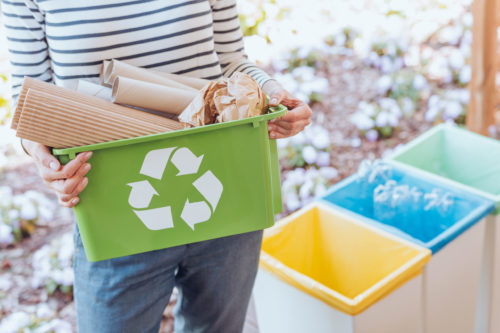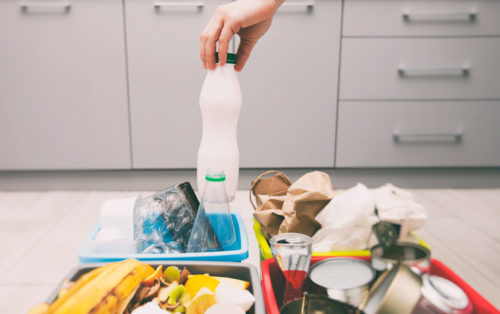Contact
BEYOND RECYCLING
BEYOND RECYCLING
Story of a recycling journey: the path of a container from the moment it’s thrown away until it is reused
One of the objectives marked in red by the European Union (EU) for some years now is the commitment to the circular economy. It is estimated that, in countries like Spain, around half of the waste generated at home ends up in a landfill. The community institutions intend to ensure…
More aware, more proactive and more involved: why Europeans recycle more after the pandemic
The circular economy is leading to less talk about garbage and making it more about waste, since it is possible to recycle them in the production of new goods or as energy fuel. Paradoxically, the pandemic has not only not stopped this trend, but has increased it, and today, citizens…
The keys to the new European guidelines on single-use plastics
In 2019, Directive 2019/904, which established the express prohibition of marketing certain single-use plastics, saw the light. The rule would become effective in 2021 – it gave the member states of the European Union (EU) two years to transpose the text into their national legislation – and it would mean…
Most common mistakes in recycling at home: What are the consequences for the environment?
In one year, humanity can generate more than 11,000 million tons of solid waste. According to data from the United Nations (UN), a million plastic bottles are bought in the world every minute. In total, this body estimates that, despite the international effort in recycling activities over the last decades,…
The Circular Economy could generate up to 160,000 jobs if recycling is increased
SMEs represent more than 99% of companies in Spain, but there are still many, 46%, who do not know what the advantages of the Circular Economy are. Despite this, they are making progress in this area since it is a very relevant source of employment. This is one of the…
Investment in zero-waste systems presents an opportunity for economic revival and social justice
The COVID-19 pandemic has had a strong economic and social impact. That is why revitalization, job creation and poverty reduction are top priorities for Governments around the world. The health crisis has also triggered the use of single-use products, such as masks or gloves, and has placed plastic as an element of protection against the virus.
Solutions for a circular, low-carbon Europe
The linear model of “take, do, throw” must be kept in the background. Not only is it a wasteful model, but it is also a major contributor to climate change. And the latter’s costs to the world economy are projected to reach $ 54 trillion by the end of the century. But not only will it be an economic crisis, but there will also be social repercussions. Climate change mitigation and adaptation policies are therefore as essential to the future of the economy and society as they are to the environment.
The circularity of the global economy must be doubled to preserve a habitable planet
The next decade is decisive to improve the future of the Earth and, for this, to continue moving towards a circular model is essential. The current economy is only 8.6% circular, which leaves a large gap open, which would be closed by increasing circularity by 8.4%, that is, practically double…
Why do we need universal policy goals on circular economy?
Climate change, pollution and loss of biodiversity. Three major global problems that the circular economy can address. In addition, circularity has many health benefits, thanks to the reduction of environmental impacts, better management of resources and advances in food security. Ultimately, the circular economy is essential to achieving the United…
The waste management sector can generate 2.9 million jobs in Europe
An economy capable of creating employment opportunities is essential. However, it is even more so in times of recession like the present. Therefore, now that both governments and the private sector have opted to invest in “green” or neutral economic recovery strategies, it is important to assess the potential use…
- Nuñez de Balboa, 120 E28006 Madrid
- +34 915 625 410
- Polígono Industrial Romica, Calle 5 E02007 Albacete (Spain)
- Do you want to work with us?
Ethical Channel:

PROJECT CO-FINANCED BY THE EUROPEAN UNION MULTI-REGIONAL OPERATIONAL PROGRAM FOR SPAIN 2014-2020
Project: new plastic treatment plant and recycling of plastics

A WAY OF MAKING EUROPE









